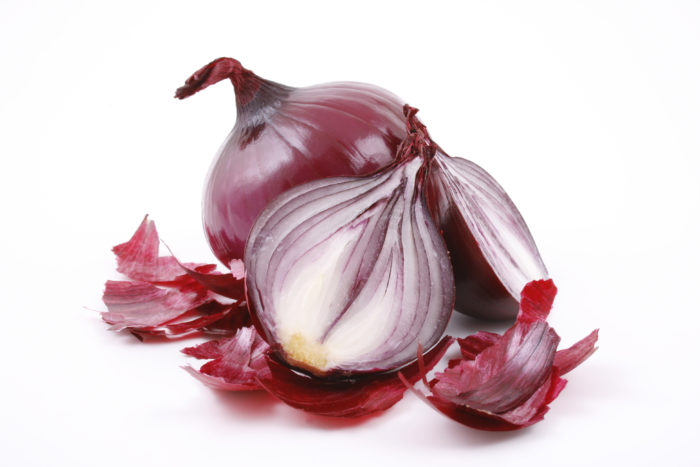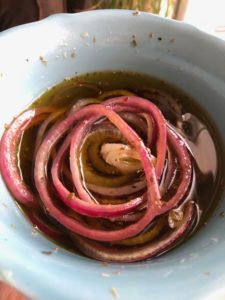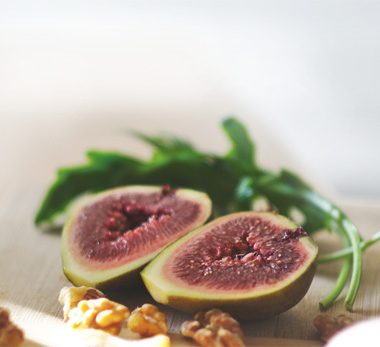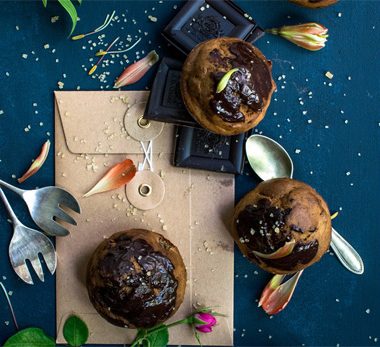The Benefits of Eating Onion

The onion (Allium cepa), like garlic, is a member of the lily family. These flavorful bulbs are packed with nutrients – vitamins C and B6, biotin, chromium, and dietary fiber. Also a good source of folic acid, and vitamins B1 and K.
Onions are also an excellent source sulphuric compounds, flavonoids (primarily quercetin) and phenolic acids, such as ellagic acid, sinapic, and p-coumaric; sterols; saponins; pectin; and volatile oils.
Flavonoids are responsible for pigments in many fruits and vegetables. Studies have shown that they may help reduce the risk of Parkinson’s disease, cardiovascular disease, and stroke. Quercetin, which acts as an antioxidant that may be linked to preventing cancer, also has heart health benefits, reduces bladder infections, promotes prostate health and lowers blood pressure.
Heart Health
According to the University of Maryland Medical Center, the quercetin in onions may also help prevent plaque build-up in the arteries, which reduces the risk of heart attack and stroke. A 2016 study in the journal Redox Biology found that consuming onions increases oxylipins that help regulate blood fat levels and levels of cholesterol.
Asthma
Onions has historically been used to treat asthma. It’s action in asthma is due to its ability to inhibit the production of compounds that cause the bronchial muscles to spasm. Quercetin has been found to relax the airway muscles and may provide relief of asthma symptoms, according to a 2013 study in the American Journal of Physiology. The sulfurs in onion can also be effective anti-inflammatory agents, research in the journal International Archives of Allergy and Applied Immunology.
Immune system
The polyphenols in onions act as antioxidants, protecting the body against free radicals which can encourage a stronger immune system. The quercetin in onions may also reduce allergic reactions by stopping your body from producing histamines, which can lead to allergic symptoms like sneezing or rash.
Cancer
Quercetin may be a powerful anti-cancer agent – especially inhibiting cancer cells in breast, colon, prostate, ovarian, endometrial, and lung tumors. A 2015 meta-analysis found that intake of allium vegetables, including onions, were associated with reduced gastric cancer risk.
Onions may help with some side effects from cancer treatments, as well. A 2016 study published in Integrative Cancer Therapies found that consuming fresh yellow onion helped lessen insulin resistance and hyperglycemia in breast cancer patients undergoing a form of chemotherapy known to cause insulin resistance.
Digestion
The fiber in onions promotes good digestion and feeds your gut microbes – onions contain a special type of soluble fiber called oligofructose, which promotes good bacteria growth. The phytochemicals in onions that scavenge free radicals may also reduce your risk of developing gastric ulcers.
Regulating blood sugar
Allyl propyl disulfide (APDS) in onions have been shown to have blood sugar lowering action. The chromium is also believed to assist in regulating blood sugar, as well as, the sulfur which helps lower blood sugar by triggering increased insulin production. One 2010 study in the journal Environmental Health Insights revealed that this might be especially helpful to people with people with diabetes. People that ate red onions in particular showed lower glucose levels for up to four hours.
A 2014 meta-analysis in the journal Nutrition found that patients with Type 2 diabetes saw more normalized liver enzymes and lower glycemic levels when consuming sliced onions.
How to enjoy them
Onions are healthy whether they’re raw or cooked, though raw onions have higher levels of organic sulfur compounds that provide many benefits. Red onions are especially high in quercetin, according to the association. Shallots and yellow onions are also good options. White onions contain the least amount of quercetin and other antioxidants.
If you have not discovered No Crumbs Left, run don’t walk yourself over to her website and Instagram page right now. I recently stumbled upon Teri on social media and I love her no-nonsense approach to cooking with real food. Her Marinated Red Onion Magic Elixir is my new favorite topping and don’t even get me started on the added health benefits of the olive oil and oregano.
Allergy
While not serious, eating onions can cause discomfort for some people. Onions, especially if consumed raw, can irritate people who suffer from chronic heartburn or gastric reflux disease. Eating a large amount of green onions , which contain a high amount of vitamin K, could increase interfere with blood thinning drugs.
It is also possible to have a food intolerance or allergy to onions, but cases are rare, according to an article in the Journal of Allergy and Clinical Immunology. People with onion allergies may experience red, itchy eyes and rashes if an onion comes into contact with the skin. People with an intolerance to onions may experience nausea, vomiting and other gastric discomfort.
__________
Research
Akash, Muhammad Sajid Hamid, et al. “Spice Plant Allium Cepa: Dietary Supplement for Treatment of Type 2 Diabetes Mellitus.” Nutrition, vol. 30, no. 10, 2014, pp. 1128–1137., doi:10.1016/j.nut.2014.02.011.
Dorsch, W., et al. “Anti-Inflammatory Effects of Onions: Inhibition of Chemotaxis of Human Polymorphonuclear Leukocytes by Thiosulfinates and Cepaenes.” International Archives of Allergy and Immunology, vol. 92, no. 1, 1990, pp. 39–42., doi:10.1159/000235221.
Eldin, Imad M. Taj, et al. “Preliminary Study of the Clinical Hypoglycemic Effects of Allium Cepa (Red Onion) in Type 1 and Type 2 Diabetic Patients.” Environmental Health Insights, vol. 4, 2010, doi:10.4137/ehi.s5540.
González-Peña, Diana, et al. “New Insights into the Effects of Onion Consumption on Lipid Mediators Using a Diet-Induced Model of Hypercholesterolemia.” Redox Biology, vol. 11, 2017, pp. 205–212., doi:10.1016/j.redox.2016.12.002.
Jafarpour-Sadegh, Farnaz, et al. “Consumption of Fresh Yellow Onion Ameliorates Hyperglycemia and Insulin Resistance in Breast Cancer Patients During Doxorubicin-Based Chemotherapy: A Randomized Controlled Clinical Trial.” Integrative Cancer Therapies, vol. 16, no. 3, 2016, pp. 276–289., doi:10.1177/1534735416656915.
Jeong, Jae-Hoon, et al. “Effects of Low Dose Quercetin: Cancer Cell-Specific Inhibition of Cell Cycle Progression.” Journal of Cellular Biochemistry, vol. 106, no. 1, 2009, pp. 73–82., doi:10.1002/jcb.21977.
Mlcek, Jiri, et al. “Quercetin and Its Anti-Allergic Immune Response.” Molecules, vol. 21, no. 5, 2016, p. 623., doi:10.3390/molecules21050623.
Townsend, Elizabeth A., and Charles W. Emala. “Quercetin Acutely Relaxes Airway Smooth Muscle and Potentiates β-Agonist-Induced Relaxation via Dual Phosphodiesterase Inhibition of PLCβ and PDE4.” American Journal of Physiology-Lung Cellular and Molecular Physiology, vol. 305, no. 5, 2013, doi:10.1152/ajplung.00125.2013.








